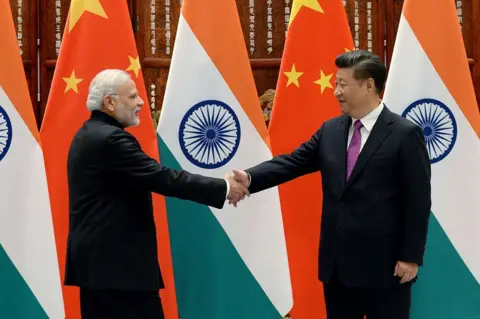The Indian government is taking a firm stand against Sotheby's, urging the auction house in Hong Kong to cease its planned auction of jewels associated with the remains of Buddha. This significant auction, scheduled for Wednesday, features valuable gems believed to have been buried alongside bone fragments of the revered figure over one hundred years ago. Officials from India have unequivocally stated that the sale contravenes both Indian and international laws as well as United Nations conventions, asserting that the jewels should be regarded as sacred artifacts.
The upcoming auction has drawn sharp criticism from various Buddhist communities and art historians worldwide. In response to the situation, the Indian Ministry of Culture has publicly released a letter addressed to Sotheby's, as well as to Chris Peppé, a descendant of the British archaeologist William Claxton Peppé, who excavated these artifacts back in 1898. The ministry indicated that Sotheby's acknowledged receipt of the legal notice and is actively addressing the issue.
According to the ministry's Instagram post, Peppé does not possess the authority to sell these relics, and the auction house is accused of enabling "colonial exploitation." The auction features artifacts that were discovered at a stupa located at Piprahwa, near the traditional birthplace of Buddha, Lumbini. Peppé's ancestor discovered a remarkable collection, including around 1,800 gems such as rubies and sapphires, which were stored in a brick chamber.
William Peppé passed these treasures to the colonial Indian authorities, from which the bone relics were subsequently transferred to the Buddhist King of Siam while other items were deposited in the Indian Museum in Kolkata. The Indian Ministry contests that the term "duplicates," used by Peppé regarding the remaining jewels in his family’s possession, misrepresents their cultural significance, as they constitute an essential aspect of India's religious and cultural heritage.
The ministry has insisted that these remnants cannot justly be classified as mere specimens but should be regarded as sacred. Furthermore, the government has cast doubt on the legitimacy of Peppé's claim to custodianship, arguing that sellers lack the right to sell jewels they consider part of an "extraordinary heritage of humanity."
In light of these developments, the Indian government has sought a public apology from both Sotheby's and Peppé while calling for full transparency regarding the provenance of these relics. Failure to comply with these requests may lead to legal actions in both India and Hong Kong under cultural heritage laws, alongside a potential public campaign aimed at condemning Sotheby's role in perpetuating "colonial injustices." Chris Peppé has stated that while the family considered donating the relics, logistical challenges led them to opt for the auction route, which they view as a fair means of transferring the items to the Buddhist community.
Over the past few years, the gems have been part of high-profile exhibitions, including one at The Metropolitan Museum of Art in 2023. The Peppé family has also created a website dedicated to sharing their research concerning the artifacts. Nevertheless, the Indian Ministry has criticized the monetization of the jewels through exhibitions, reinforcing their claim to rightful ownership of these historically significant items.






















